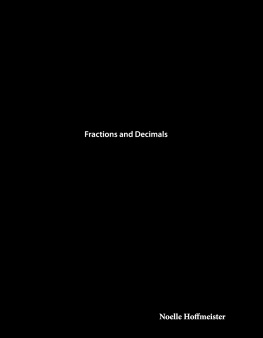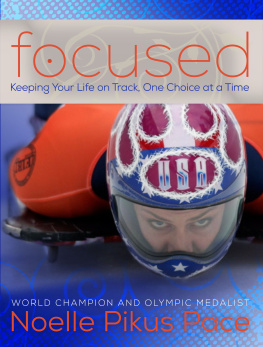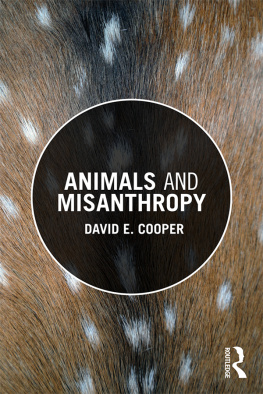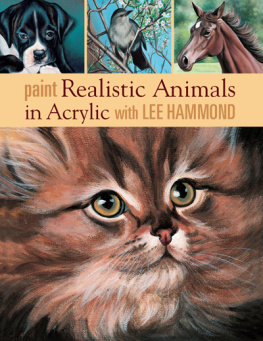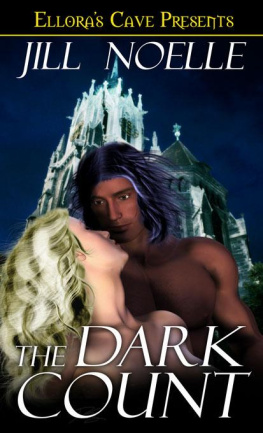Originally published in French as Rapport aux btes by Gallimard, Paris, 2002
Copyright ditions Gallimard, Paris, 2002
Translation copyright 2012 by W. Donald Wilson
First edition, 2012
All rights reserved
Library of Congress Cataloging-in-Publication Data
Revaz, Nolle.
[Rapport aux btes. English.]
With the animals / Noelle Revaz ; translated by W. Donald Wilson. -- 1st ed.
p. cm.
Originally published in French as Rapport aux btes by Gallimard, Paris, 2002.
ISBN 978-1-56478-754-5 (pbk. : alk. paper) -- ISBN 978-1-56478-721-7 (cloth : alk. paper)
I. Wilson, William Donald, 1938- II. Title.
PQ2678.E8167R36 2012
843.92--dc23
2012004233
Partially funded by a grant from the Illinois Arts Council, a state agency
The publication of this work was supported by a grant from Pro Helvetia, Swiss Arts Council
Cet ouvrage a bnfici du soutien des Programmes daide la publication de lInstitut franais/ministre franais des affaires trangres et europennes
This work was supported by the Publications Assistance Programs of the French Institute / French Ministry of Foreign and European Affairs
Ouvrage publi avec le concours du Ministre franais charg de la culture
Centre national du livre
This work has been published, in part, thanks to the French Ministry of Culture
National Book Center


www.dalkeyarchive.com
Cover: design and composition by Sarah French
Printed on permanent/durable acid-free paper and bound in the United States of America
WITH THE ANIMALS
NOLLE REVAZ
Translated by W. Donald Wilson

Dalkey Archive Press
Champaign Dublin London
Contents
Translators Note
Paul, the narrator and principal protagonist of With the Animals , is an unusual character: a barely literate farmer who lives in almost complete isolation in a remote location, never precisely specified. He has a wife whom he treats with callous brutality: their relationship is summed up by the name he gives her: Vulva. (The author has confessed that in using this word she felt a sense of shame she needed to overcome, since it was her point of departure for the entire novel.) Paul also has several children to whom he is so indifferent that he is unsure how many of them there are, or of their names. He seems capable of concern and affection only for his cows: they alone are fully real for him. Revaz has described Paul as a childlike consciousness who has yet to achieve adulthood: he has both good and bad in him, but he has never learned to recognize feelings and is unable to find a place for them in his life.
All of this is seen through Pauls eyes and related in his voice. Indeed, the substance of Nolle Revazs novel is at least as much a voice as a character or a story. Paul is embodied by his language. Not only does it display his lack of literacy, his awkwardness, coarseness, and brutalityone critic has described it as a slap in the face to fine languagehis struggle to express himself especially reflects his difficulty with emotions and his existential incompetence.
In the original French, Paul lives in no specific place, nor does he use any particular form of speech or dialect: his idiom is an invented one. Of course many of the idiosyncrasies of his French are unavailable in English, such as his mangling of the more complex French negatives, his ease in inventing reflexive forms of verbs, and his placement of adjectives before rather than after nouns (and vice versa). Also unavailable was his constant use of the impersonal pronoun on, used to create a greater impression of detachment and depersonalization than is allowed by its closest available English equivalent, you. I was therefore concerned to develop a voice that, while delivering that slap in the face, would not show any strained attempt to write incorrectly or distort the English language unnaturally, but would flow instead from Pauls character and situation. Lacking any example or conventional usage to follow, Paul would have to improvise his language, resulting in a certain stylistic awkwardness. His word-order would be unconventional, reflecting the spontaneous order of his thoughts (for instance in the placement of adverbs or in stating the topic or subject of sentences first, as in Georges, he said ). His use of conjunctions would be weak. Object pronouns would sometimes be omitted, and the definite article would sometimes occur where no article is normal in English. He would be uncertain of grammatical categories, confusing nouns, adjectives and verbs. His grasp of verb forms, especially of the verb to be (as in there is + plural, or you/we/they was ), and of pronouns would be unsure (as in me for I and them for those ). Yet he would not use common dialect forms such as aint , and only occasionally employ double negatives.
However, there would also be another side to Pauls language. In particular, Nolle Revaz has written that in composing With the Animals she allowed herself to be guided by the music of words and the rhythms of sentences at the expense of grammatical rules, and I was mindful of this. As in the original French, Paul would at times be quite creative in his vocabulary, coining a number of (frequently portmanteau) words. Now and then, indeed, he demonstrates a considerable gift for language, and even a hint of poetry emerges at times, as if to suggest the potential for a more fully human Paul...
Before when I go out in the morning Ive knocked back a good brimmer already and things fall together like straw. Till then Ive a face like night on me and a garlic mouth and I cant stand anyone wants to be coddled like a snot-nosed pup. Head under the tap and already Im getting the machines out. Vulva, shes still dragging round, she scrubs down in a corner and dries off in the kitchen.
Theres feeding to be done. The animals, theyre astir long before us, theyre no slackers, they wait patient till weve finished our purgings to recruit up their strength, to get back to the grind. Theres the feeding and then the milking. Vulva, shed be good help if just she knew how, but already the milk cans is full when still shes hacking about inside, and I go in and find the coffee cold and the toast going dry. Sometimes I eat nothing shes fixed and I never drink what shes brewed and I spit her cooking back at her. Vulvas a tough nut, she never turns a hair. Its like the animals: when theyve seen what a stick is for they think twice before they misbehave, and thats the way to handle them, giving them to remember and respect the master.
Mornings theres a phenomenal pile of work waiting. You knew that before you went to sleep, you knew already from the evening before, but even if you get the urge to go out and set at it again and get well ahead you still have to lie in bed and sleep, but it drives you crazy figuring theres nothing useful you can do all night but waste time. I can lie long awake in the dark if I think about that pile of work waiting. Vulva, she never thinks. Always she goes to sleep off by herself and grunts the whole night away.
If thered been no Vulva on the farm things would have gone easy. Id never have had the cost of a farmhand if Vulva had left the spot for some capable body, Id never have gotten the machines and Id never have had the debts nor needed to sell land we had from before Pa. Thered have been no young ones, and young ones make work for you. Its watching all day theyre not playing on the harrows, its making sure theyre not hiding in the silos when theyre filling, and never go gabbing with the farmhand, seeing it can hurt you to learn Portuguese alongside French. Vulvas brood, she didnt make them on her own, and someone has to be father to them. When I have them I give them what they need, and a good hiding if they get too wild, for if you love you lay on the stick.
Next page

